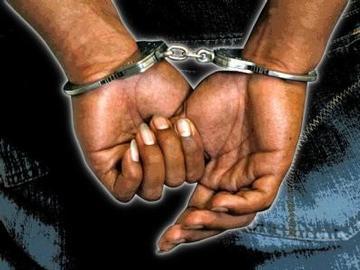
Myth That There are More Black Men in Prison Than College is Debunked
Special to the Ourlook from Trice Edney News Wire
In a 2013 column for The Root, Howard University professor and Congressional Black Caucus Foundational analyst Ivory A. Toldson said that the myth about there being more Black men in prison than in college is “the most frequently quoted statistic about Black men in the United States.”
An article in the Feb. 12 edition of Vox.com talked about the myth’s source, its impact on communities of color and evidence that clearly proves the myth’s fallacy. Over the years, the myth has taken on a life of its own, being cited by everyone from civil rights leaders to Black scholars and local community leaders.
Its origins have been traced back to a 2002 report from the Justice Policy Institute titled “Cellblocks or Classrooms: The Funding of Higher Education and Corrections and Its Impact on African-American Men,” The report asserted that “nearly a third more African-American men are incarcerated than in higher education,” an observation that both sent shockwaves across America and resonated with groups striving to boost Black male academic achievement and college enrollment.
Vox.com pointed out that the statistic’s sobering ramifications were not lost on Barack Obama who mentioned it during a 2007 NAACP forum, saying, “We have more work to do when more young Black men languish in prison than attend colleges and universities across America.”
Former NBA great Charles Barkley also used the false stat in 2012 to explain why he felt compelled to carry a gun, “You know, we as Black people always, we don’t have respect for one another,” he said. “You know, we’ve got more Black men in prison than we do in college, and crime in our neighborhoods is running rampant.”
The stat was so widely accepted that many Blacks began referring to jails and prisons as “the Black man’s university,” a thinly veiled reference to Black nationalist leader Malcolm X’s years behind bars.
Despite the wide acceptance of the “Black men in prison” myth, the numbers don’t support the myth. According to the U.S. Census, about 18,508,926 people in the U.S. population are Black males, of all ages. In 2013, 1,437,363 were enrolled in college, according to the National Center for Educational Statistics.
As of the middle of 2013, there were 219,660 Black males in local jails, and 526,000 Black males were in state or federal prison, totaling about 745,000 behind bars, according to the Bureau of Justice Statistics’ National Prisoner Statistics Program.
Dr. Toldson believes that the 2002 “Cell Blocks Versus Class¬room” report was based on incomplete data, adding that in addition to being inaccurate the 13-year-old data is now outdated. “I pulled the data from 2001 that the Justice Policy Institute used [for the ‘Cellblocks of Class¬rooms ‘report] and I noticed that at least 1,000 colleges weren’t reporting their head count of Black males then,” Toldson told NPR in 2013. “And I also noticed that a lot of colleges that didn’t report any numbers, when the Justice Policy Institute wrote their report, were historically Black universities. They were big, state universities that I’m pretty sure had some Black males present at the time.”Essentially, the number of Black males enrolled in college was undercounted, providing an inaccurate view of the state of Black males in the U.S.
While the college numbers are not as dire as the 2002 report suggested, the recent nationwide protests show that there is still a great deal of room for improvement in the lives of Black males.
A wide assortment of programs aimed at improving academic performance and college among Black males are yielding positive results with statistics showing that the enrollment of Black males in college rose from 693,044 in 2001 to 1,437,363 in 2013.
While the “Black men in prison” myth was often used by policymakers, community organizers and leaders with the best of intentions, because it is a falsehood it has proven to be harmful to communities of color. It paints a negative picture of Black male academic achievement and feeds into the stereotype that Black males are predisposed to crime and violence.
Toldson summoned up the perils that come with allowing this myth to continue to live:”[W]e will not sufficiently support black male college students — nor college-bound students — if we simply keep perpetuating the myth that juxtaposes their needs with those of black males in the criminal-justice system.”








